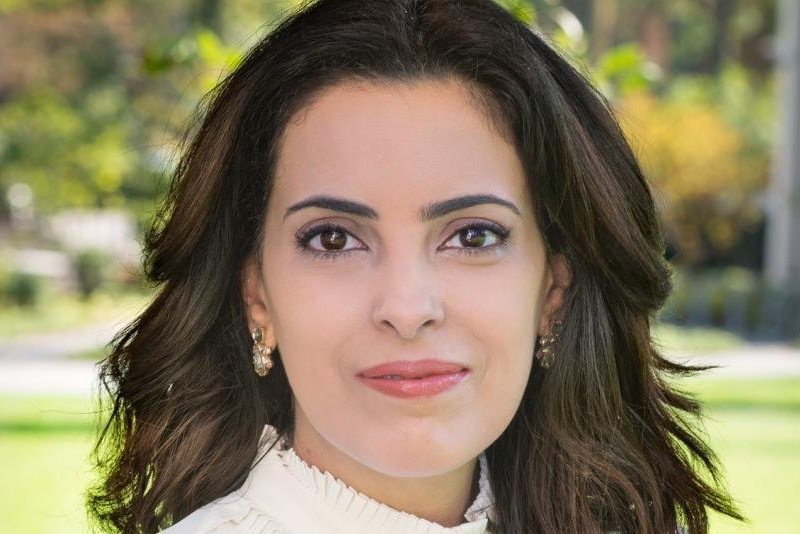Hala Aldosari, a Saudi scholar and activist whose work focuses on women’s rights in Arab societies, violence against women, and the “guardianship” system in Saudi Arabia, has joined the MIT Center for International Studies (CIS) as its Robert E. Wilhelm Fellow.
Aldosari arrives to MIT on June 1, and will spend the academic year conducting research on successful initiatives of women’s rights in the Arab countries. In addition, she will use the fellowship to establish an advocacy organization to advance women’s and human rights in Saudi Arabia.
Aldosari maintains a women’s rights advocacy project online (aminah.org) and participates in advocacy efforts and community capacity building aimed at promoting women’s rights and combating violence against women in Saudi Arabia. She is an advisory board member for Human Rights Watch in the Middle East and the Gulf Center for Human Rights. She is also serving as a steering committee member in the Harvard University-led initiative, Every Woman, to establish a United Nations global treaty on violence against women.
She has worked as a medical scientist, lecturer, and an administrator in the Saudi health and education sector. She has also worked as a consultant to the Ministry of Health in Saudi Arabia in research and planning of the country’s national health policy and services.
A writer and a blogger, Aldosari comments on Saudi political and social affairs. Her writings have been featured in several major media outlets including Foreign Affairs, The New York Times, The Guardian, and Foreign Policy, among others.
In February, she was selected as the inaugural recipient of The Washington Post’s Jamal Khashoggi Fellowship. The fellowship — a new global opinions program established to honor the late Post columnist Jamal Khashoggi — provides an independent platform for journalists and writers to offer their perspectives from parts of the world where freedom of expression is threatened or suppressed.
“When surveying the turbulence in the Middle East,” says Richard Samuels, the Ford International Professor of Political Science and director of CIS, “the center’s concerns include the dissolution of order and optimism in Arab states, the crisis in the Gulf generally, and the quashing of human rights values and aspirations six to eight years after Arab Spring. We need to understand the region more clearly, and our students should be exposed to first-hand knowledge of pressing issues. Dr. Aldosari is a recognized pioneer on many of these issues and will contribute greatly to our intellectual community. We look forward to welcoming her to MIT.”
Aldosari comes to CIS from New York University, where she served as a scholar-in-residence at the Center for Human Rights and Global Justice. Prior to that, she was a visiting scholar at The Radcliffe Institute for Advanced Study at Harvard University (2017-2018), and at The Arab Gulf States Institute in Washington (2016-2017). In 2015, she completed a fellowship at Johns Hopkins University, focusing on social determinants of women’s health and violence against women.
Aldosari earned her PhD in health services research from Old Dominion University, concentrating on the epidemiology of violence against women and its adverse health outcomes in Saudi Arabia. She earned her MS in medical science from the University of Surrey in the U.K.
“It is an honor to receive the fellowship at such a pivotal and transformative moment in the Arab countries. I am grateful that it will provide me with a precious opportunity to organize my thinking and research for political and civil reforms in Saudi Arabia,” Aldosari says.
A generous gift from Robert E. Wilhelm supports the Center's Wilhelm fellowship. The fellowship is awarded to individuals who have held senior positions in public life and is open, for example, to heads of non-profit agencies, senior officials at the U.S. State Department or other government agencies, including ambassadors, or senior officials from the UN or other multilateral agencies. Previous Wilhelm Fellows include: Admiral Scott Swift; the Honorable James E. Baker, former chief judge of the U.S. Court of Appeals for the Armed Forces; Lourdes Melgar, Mexico's former deputy secretary of energy for hydrocarbons; Paul Heer, former national intelligence officer for East Asia; Joel Brenner, former U.S. National Security Agency inspector general; Abbas Maleki, Iran’s deputy foreign minister from 1988 to 1997; U.S. Ambassador Barbara Bodine; U.S. Admiral William Fallon; Naomi Chazan, an Israeli academic, activist, and politician; and Yukio Okamoto, a special advisor to the prime minister of Japan.






